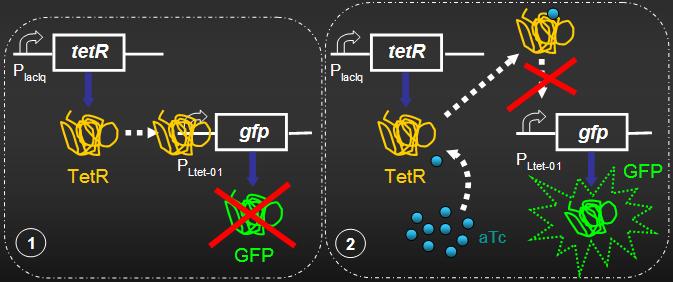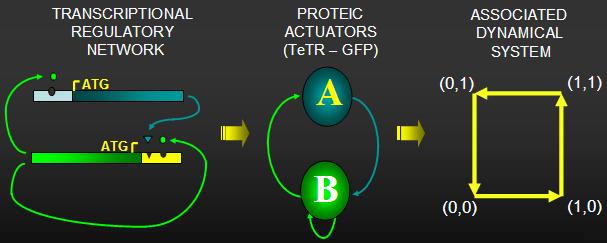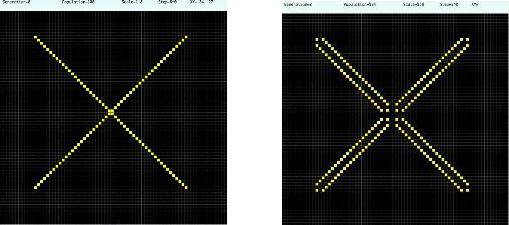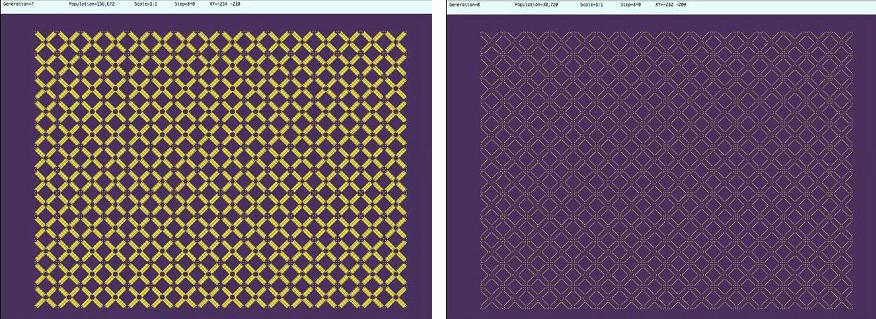IPN UNAM 2006
From 2006.igem.org
| (141 intermediate revisions not shown) | |||
| Line 1: | Line 1: | ||
| - | [[Image:IGEMEXICO.jpg | width=200px | height=100px ]] | + | <center>[[Image:IGEMEXICO.jpg | width=200px | height=100px ]]</center> |
| + | |||
| + | == '''First bulletin of iGEM MEXICO''' November 1, 2006 (bulletin in Spanish). [[Media:Bulletin-1.pdf]] == | ||
[[Image:IPN_logo.jpg]] | [[Image:IPN_logo.jpg]] | ||
| - | [http://www.ipn.mx/ Instituto Politécnico Nacional, México] | + | [http://www.ipn.mx/ Instituto Politécnico Nacional-Universidad Nacional Autónoma de México, México] |
---- | ---- | ||
| - | == Mexican Staff - iGEM == | + | == Mexican Staff - iGEM MEXICO== |
---- | ---- | ||
| - | ''' | + | <font size=2> '''STUDENTS'''</font> |
| - | Tania G. Bermúdez Cisneros | + | Iván Y. Fernández Rosales (najtaaj#gmail.com), Paulina A. Leon Hernández (pauanana#gmail.com), Tania G. Bermúdez Cisneros (tgbermudez#hotmail.com), Pablo Gerardo Padilla (tyomero#gmail.com), Julio N. Argota Quiróz (julioargota#hotmail.com), Alejandra Sánchez Arzate (alesa#ciencias.unam.mx) |
| + | Rosario E. Gordillo Padilla (extraterrestre710#hotmail.com) and Rafael Peña Miller (rpena#ciencias.unam.mx) | ||
| - | |||
| - | + | <font size =2> '''INSTRUCTORS''' </font> | |
| - | + | Genaro Juárez Martínez (genarojm#correo.unam.mx), Pablo Padilla Longoria (pablo#mym.iimas.unam.mx), Edgar Salgado Majarrez (esalgado#ipn.mx), Juan S. Aranda Barradas (jaranda#acei.upibi.ipn.mx), Rosaura Palma Orozco (rpalma#math.cinvestav.mx), Ma Carmen Oliver Salvador (oliveripn#hotmail.com) and Arturo Becerra Bracho (abb#fciencias.unam.mx), Elias Samra Hassan (elias#uxmcc2.iimas.unam.mx), Fabiola Ramírez Corona (framirez#miranda.ecologia.unam.mx), Paola B. Zarate Segura (Pbzars#yahoo.com), Ulises Vélez Saldaña (ulises.velez#gmail.com), Jaime López Rabadan (rabadanlorj#gmail.com), Carlos Silva Sánchez (sscarlos#gmail.com) and Claudia I. Franco Arteaga (claudia_imelda#yahoo.com) | |
| - | |||
| - | + | ---- | |
| - | + | ||
| - | + | ||
| - | + | ||
| - | + | ||
| - | + | BIO: Biology, COM: Computation, PHY: Physics | |
| - | + | ||
| - | + | ||
| - | + | ||
| - | + | ||
| - | + | ||
| - | + | ||
| - | + | ||
| - | + | ||
| - | + | ||
| - | + | ||
| - | + | ||
| - | + | ||
| - | + | ||
| - | + | ||
| - | + | ||
| - | + | ||
| - | + | ||
| - | + | ||
| - | + | ||
| - | + | ||
| - | + | ||
| - | + | ||
| - | + | ||
| - | + | ||
| - | BIO: | + | |
---- | ---- | ||
| Line 83: | Line 55: | ||
implement broader real biological scenarios. | implement broader real biological scenarios. | ||
| + | ---- | ||
| - | + | ==iGEM México Project== | |
| + | ---- | ||
| - | + | '''EXPERIMENT PROPOSAL:''' Engineering a genetic signaling cascade to produce a green flourescence protein expression/repression system in ''Escherichia coli''. | |
| + | |||
| + | <center>[[Image:Upibifig1.JPG]]</center> | ||
| + | <center>'''Figure 1.''' Green flourescense protein.</center> | ||
| + | |||
| + | |||
| + | '''IN THIS PART OF THE PROJECT:''' We intend to emulate some genetic networks already identified in ''Arabidopsis'' responsible for the formation of hair in root and leaves. These networks lead to simple genetic circuits of the repression/expression type. We would like to show that these systems support '''Turing patterns'''. | ||
| + | |||
| + | |||
| + | <center>[[Image:Unam1.JPG]]</center> | ||
| + | <center>'''Figure 2.''' Turing patterns.</center> | ||
| + | |||
| + | |||
| + | '''MODELLING PROPOSAL:''' Developing models to describe inside-the-cell metabolic events | ||
| + | through a cellular automata approach. | ||
| + | |||
| + | |||
| + | We study two-dimensional cellular automaton, where every cell takes states 0 and 1 and updates its state depending on sum of states of its 8 closest neighbors as follows. Cell in state 0 takes state 1 if there are exactly two neighbors in state 1, otherwise the cell remains in state | ||
| + | 0. Cell in state 1 remains in state 1 if there are exactly seven neighbors in state 1, otherwise the cell switches to state 0. CA governed by such cell-state transition rule exhibits reaction-diffusion like pattern dynamics, so we call this '''Diffusion Rule'''. | ||
| + | |||
| + | |||
| + | <center>[[Image:Diffusionrule.JPG]]</center> | ||
| + | <center>'''Figure 3.''' Diffusion rule.</center> | ||
| + | |||
| + | |||
| + | Using the diffusion rule we can generate a dynamical pattern over a system, like turn on/off | ||
| + | ligth with alive o dead cells that shows a luminescence, examples include fluorescence, | ||
| + | bioluminescence and phosphorescence. | ||
| + | |||
| + | Starting with any configuration, the cells alive are represented in yellow (the activator) and dead in black (the inhibitor), see figure 4. The system is created defining an inicial state over the base configuration (see figure 3). The luminescence is obtained by | ||
| + | the evolution of this initial pattern. | ||
| + | |||
| + | |||
| + | |||
| + | <center>[[Image:Lumi.JPG]]</center> | ||
| + | <center>'''Figure 4.''' Luminescence by diffusion rule.</center> | ||
---- | ---- | ||
| + | |||
| + | ==Collaborators== | ||
| + | ---- | ||
| + | Paula Figueroa Arredondo (BIO), Absalom Zamorano (BIO), Claudia Benítez (BIO), Jovita Martínez (BIO), Juan C. Seck Tuoh Mora (COM), Sergio V. Chapa Vergara (COM), Francisco Hernández Quiroz (COM), Carlos A. Espinosa Soto (BIO), Mark Olson (BIO), José U. Cruz Cedillo (COM), Rocío Reséndiz Muñoz (COM), Georgina V. Juárez Martínez (BIO), Giovanna Salamanca Pinzón (BIO), Melina López Meyer (BIO) and Oscar Olmedo (COM). | ||
| + | |||
| + | |||
| + | ---- | ||
| + | |||
==Institutions== | ==Institutions== | ||
---- | ---- | ||
Latest revision as of 16:39, 20 June 2007

Contents |
First bulletin of iGEM MEXICO November 1, 2006 (bulletin in Spanish). Media:Bulletin-1.pdf
[http://www.ipn.mx/ Instituto Politécnico Nacional-Universidad Nacional Autónoma de México, México]
Mexican Staff - iGEM MEXICO
STUDENTS
Iván Y. Fernández Rosales (najtaaj#gmail.com), Paulina A. Leon Hernández (pauanana#gmail.com), Tania G. Bermúdez Cisneros (tgbermudez#hotmail.com), Pablo Gerardo Padilla (tyomero#gmail.com), Julio N. Argota Quiróz (julioargota#hotmail.com), Alejandra Sánchez Arzate (alesa#ciencias.unam.mx) Rosario E. Gordillo Padilla (extraterrestre710#hotmail.com) and Rafael Peña Miller (rpena#ciencias.unam.mx)
INSTRUCTORS
Genaro Juárez Martínez (genarojm#correo.unam.mx), Pablo Padilla Longoria (pablo#mym.iimas.unam.mx), Edgar Salgado Majarrez (esalgado#ipn.mx), Juan S. Aranda Barradas (jaranda#acei.upibi.ipn.mx), Rosaura Palma Orozco (rpalma#math.cinvestav.mx), Ma Carmen Oliver Salvador (oliveripn#hotmail.com) and Arturo Becerra Bracho (abb#fciencias.unam.mx), Elias Samra Hassan (elias#uxmcc2.iimas.unam.mx), Fabiola Ramírez Corona (framirez#miranda.ecologia.unam.mx), Paola B. Zarate Segura (Pbzars#yahoo.com), Ulises Vélez Saldaña (ulises.velez#gmail.com), Jaime López Rabadan (rabadanlorj#gmail.com), Carlos Silva Sánchez (sscarlos#gmail.com) and Claudia I. Franco Arteaga (claudia_imelda#yahoo.com)
BIO: Biology, COM: Computation, PHY: Physics
Line of Investigation
Our main line of investigation uses unconventional computing as a means of building novel computing paradigms, such as in biology, physics and chemistry.
We are attempting to construct discrete dynamical systems capable of simulating cellular computation. Therefore, our work focuses on molecular computation. We thus have three models using cellular automata theory (you can see our original contributions [http://uncomp.uwe.ac.uk/genaro/ click here]).
Cellular automata (CA) operate over a scales ranging from the molecular level to n-dimensions and are massively parallel. Also, they are capable of supporting universal computation, self-repair and self-reproduction.
We wish contribute to the iGEM project development various protein based bio-components. We will work along three main lines: complex and reversible dynamical systems and formal languages, that support particles and multiple reactions, related to the molecular transformations.
We aim to develop CA software for a specific bio-simulation and gradually implement broader real biological scenarios.
iGEM México Project
EXPERIMENT PROPOSAL: Engineering a genetic signaling cascade to produce a green flourescence protein expression/repression system in Escherichia coli.

IN THIS PART OF THE PROJECT: We intend to emulate some genetic networks already identified in Arabidopsis responsible for the formation of hair in root and leaves. These networks lead to simple genetic circuits of the repression/expression type. We would like to show that these systems support Turing patterns.

MODELLING PROPOSAL: Developing models to describe inside-the-cell metabolic events
through a cellular automata approach.
We study two-dimensional cellular automaton, where every cell takes states 0 and 1 and updates its state depending on sum of states of its 8 closest neighbors as follows. Cell in state 0 takes state 1 if there are exactly two neighbors in state 1, otherwise the cell remains in state
0. Cell in state 1 remains in state 1 if there are exactly seven neighbors in state 1, otherwise the cell switches to state 0. CA governed by such cell-state transition rule exhibits reaction-diffusion like pattern dynamics, so we call this Diffusion Rule.

Using the diffusion rule we can generate a dynamical pattern over a system, like turn on/off
ligth with alive o dead cells that shows a luminescence, examples include fluorescence,
bioluminescence and phosphorescence.
Starting with any configuration, the cells alive are represented in yellow (the activator) and dead in black (the inhibitor), see figure 4. The system is created defining an inicial state over the base configuration (see figure 3). The luminescence is obtained by the evolution of this initial pattern.

Collaborators
Paula Figueroa Arredondo (BIO), Absalom Zamorano (BIO), Claudia Benítez (BIO), Jovita Martínez (BIO), Juan C. Seck Tuoh Mora (COM), Sergio V. Chapa Vergara (COM), Francisco Hernández Quiroz (COM), Carlos A. Espinosa Soto (BIO), Mark Olson (BIO), José U. Cruz Cedillo (COM), Rocío Reséndiz Muñoz (COM), Georgina V. Juárez Martínez (BIO), Giovanna Salamanca Pinzón (BIO), Melina López Meyer (BIO) and Oscar Olmedo (COM).
Institutions
 Instituto Politécnico Nacional (National Polytechnic Institute)
Instituto Politécnico Nacional (National Polytechnic Institute)
 Universidad Nacional Autónoma de México (National Autonomous University of Mexico)
Universidad Nacional Autónoma de México (National Autonomous University of Mexico)
 Universidad Autónoma del Estado de Hidalgo (National Autonomous University of Hidalgo State)
Universidad Autónoma del Estado de Hidalgo (National Autonomous University of Hidalgo State)
